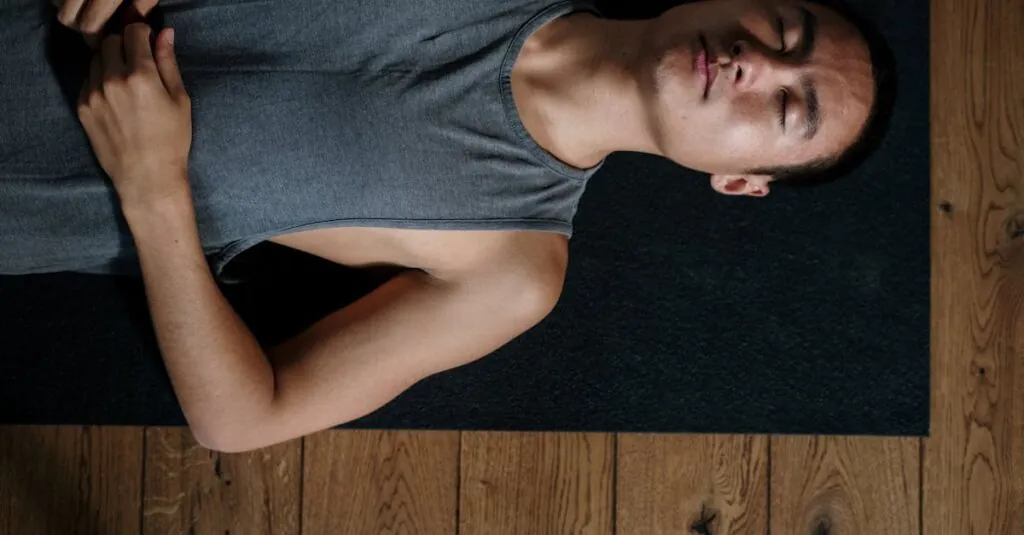In a world where bad habits sneak up like a ninja in the night, it’s time to hit the reset button and reclaim control. Whether it’s that late-night snack attack or endless scrolling on social media, everyone knows the struggle. But fear not! A habit reset isn’t just a dream; it’s a game-changer that can transform those pesky routines into powerful rituals.
Table of Contents
ToggleWhat Is Habit Reset?
Habit reset refers to the intentional process of reevaluating and altering detrimental behavioral patterns. This transformation involves recognizing negative habits, like late-night snacking or excessive social media usage. Recognizing these behaviors often serves as the first step toward change.
It emphasizes understanding triggers that lead to such habits. Identifying these triggers accelerates the ability to modify responses. Evaluating personal goals plays a significant role; setting clear, achievable objectives increases the likelihood of success.
Practicing mindfulness aids in becoming aware of habitual actions. Mindful awareness allows individuals to pause before engaging in unwanted behaviors. Creating a supportive environment further enhances the chances of effective change. This environment includes removing distractions and incorporating positive influences.
Implementing small, gradual changes often proves more effective than drastic shifts. Starting with one habit at a time encourages manageable steps toward a healthier lifestyle. Tracking progress fosters motivation, reinforcing the benefits of the reset process.
The concept also involves replacing negative habits with positive ones. For instance, substituting late-night snacking with healthier bedtime routines bolsters overall well-being. Each positive change reinforces the idea that habit reset is a continuous journey, not a finite destination. Recognizing that slip-ups can occur maintains perspective and encourages perseverance.
Embracing the idea of habit reset cultivates a renewed sense of control and purpose. This journey leads individuals toward healthier habits and a more fulfilling daily life.
Importance of Habit Reset
Resetting habits plays a vital role in personal development. This process not only clears away negative routines but also paves the way for healthier living.
Benefits of Resetting Habits
Individuals experience numerous benefits from resetting habits. Improved focus and productivity often result from eliminating distractions. Increased energy levels contribute to better overall health. Positive habits nurture emotional well-being, leading to reduced anxiety and stress. People often find they sleep better when they replace detrimental behaviors, such as late-night snacking, with healthier choices. Enhanced relationships frequently emerge as social media use declines, allowing for more meaningful interactions.
Psychological Impact
The psychological impact of a habit reset can be profound. Individuals often gain increased self-awareness through the process, allowing them to identify triggers that lead to negative behaviors. Boosting confidence becomes possible as individuals succeed in small changes, reinforcing a cycle of positive actions. Mental clarity improves as distractions diminish and focus sharpens. This shift fosters resilience against stressors, enabling individuals to respond more effectively to life’s challenges. Embracing a habit reset often results in a renewed sense of purpose, motivating individuals to pursue their goals with determination.
Steps to Achieve a Habit Reset
Achieving a habit reset involves several strategic steps that can effectively guide individuals toward positive change.
Identifying Negative Habits
Recognizing negative habits serves as the first critical step. Individuals should reflect on their daily routines to pinpoint behaviors that disrupt their well-being. Keeping a journal aids in tracking actions and feelings associated with these habits. Identifying triggers, such as stress or boredom, helps elucidate patterns. By understanding the underlying causes, individuals gain insight into necessary changes and develop strategies to address them.
Setting Clear Goals
Establishing clear goals provides direction throughout the reset process. Goals must be specific, measurable, and achievable to facilitate success. For instance, rather than aiming to “eat healthier,” an individual might decide to consume five servings of fruits and vegetables daily. Prioritizing small, attainable objectives makes the process feel less overwhelming. Reviewing and adjusting goals regularly helps maintain motivation and accountability, ensuring progress remains visible.
Implementing New Routines
Integrating new routines supports the replacement of negative habits. Gradual changes can be more effective than sudden overhauls. Starting with one new habit at a time simplifies the transition. For example, an individual can replace a late-night snacking routine with evening walks or reading. Incorporating cues helps reinforce these new behaviors, such as setting a reminder for the desired activity. Gradually, new routines will substitute old habits, fostering a healthier lifestyle.
Tools and Techniques for Habit Reset
Effective tools and techniques support successful habit resets. They empower individuals to reclaim control over their routines.
Journaling
Journaling serves as a powerful tool for self-reflection. It encourages individuals to track their daily habits and examine emotional responses. By documenting feelings and thoughts, they identify patterns in behavior more easily. Keeping a journal allows for deeper insights into personal triggers. Noting specific situations that lead to negative habits reveals underlying issues. Setting aside time each day for this practice cultivates awareness. It promotes accountability as individuals read past entries and monitor progress. Simple summaries or detailed reflections can enrich the reset experience. Ultimately, maintaining a journal clarifies objectives and highlights successes.
Mindfulness Practices
Mindfulness practices lay the groundwork for improved self-awareness. Techniques like meditation and deep-breathing exercises increase focus and relaxation. Engaging in these activities helps individuals become present in the moment. When aware of thoughts, they can recognize cravings or urges before acting on them. Mindfulness fosters a non-judgmental attitude toward personal habits. By reducing stress and promoting emotional well-being, individuals find it easier to break free from negative patterns. Daily practice, even for just a few minutes, can lead to significant changes in overall mindset. As presence strengthens, resilience against distractions and triggers increases.
Embrarking on a habit reset journey can lead to profound changes in one’s life. By recognizing negative habits and understanding their triggers individuals can take control of their routines. This process isn’t just about eliminating bad habits; it’s about replacing them with positive alternatives that enhance overall well-being.
With the right strategies in place such as goal setting mindfulness practices and a supportive environment anyone can navigate this transformative path. As individuals commit to gradual changes and track their progress they’ll likely discover newfound motivation and clarity. Ultimately the journey of habit reset empowers individuals to cultivate healthier lifestyles and achieve their personal goals with renewed determination.









